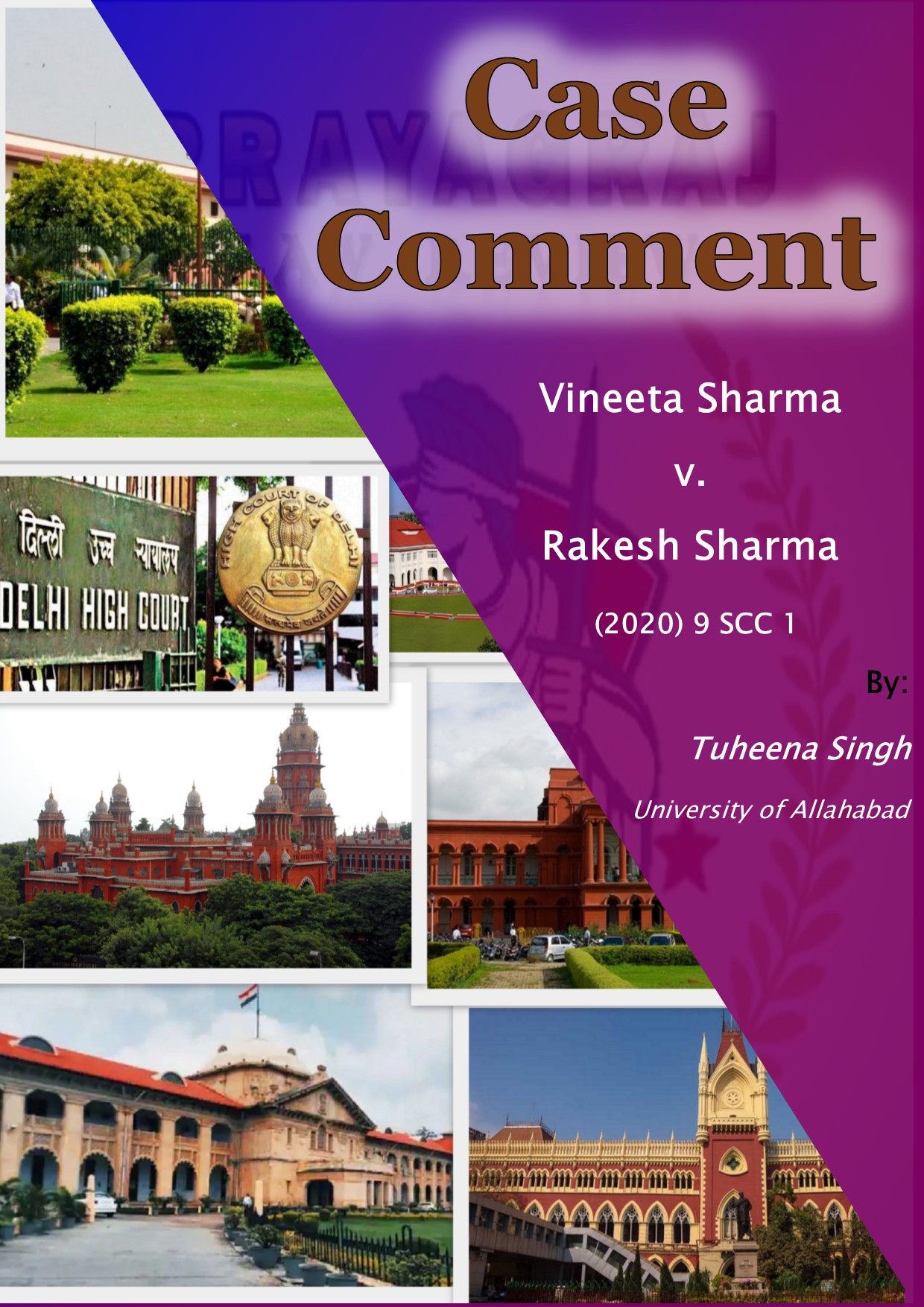VINEETA SHARMA V. RAKESH SHARMA
(Decided on 24 August 2020 by the Supreme Court in Civil Appeal No. Diary No. 32601 of 2018)*
DOI:
https://doi.org/10.61120/plr.2022.v1i150%20-%2058Keywords:
Ancestral property, Daughter’s coparcenary right, Succession, right to equality, Hindu Undivided Family, Retroactive,, Section 6 of the Hindu Succession (Amendment) Act, 2005Abstract
The present case of Vineeta Sharma v. Rakesh Sharma[1] is in relation to the daughter’s coparcenary right in ancestral property under the Hindu Succession (Amendment) Act, 2005.
Prior to 2005, females were deprived of the right to inherit and own the property of Joint Hindu Family. The Hindu Succession Act, 1956 bases its rule of succession on Mitakshara law and laid down the ‘rule of survivorship’ – inheritance of ancestral property up to four generations of male lineage. The Hindu Succession (Amendment) Act, 2005 abrogated the rule of survivorship and replaced it with the rule of ‘testamentary’ and ‘intestate’, providing the daughters with coparcenary rights by birth as well. This amendment was based on 174th Report of Law Commission of India[2] which aimed to achieve constitutional objective of gender equality.
However, the question arose as to whether the provisions of this Act have retrospective effect or prospective effect? The same has been conciliated in this case.

Downloads
Published
How to Cite
Issue
Section
License
Copyright (c) 2022 Prayagraj Law Review

This work is licensed under a Creative Commons Attribution-NonCommercial-ShareAlike 4.0 International License.
All works published in PLR are licensed under Creative Commons Attribution- Non-commercial- ShareAlike 4.0 License.
Under these terms,
You are free to:
- Share — copy and redistribute the material in any medium or format
- Adapt — remix, transform, and build upon the material
- The licensor cannot revoke these freedoms as long as you follow the license terms.
Under the following terms:
-
Attribution — You must give appropriate credit, provide a link to the license, and indicate if changes were made. You may do so in any reasonable manner, but not in any way that suggests the licensor endorses you or your use.
-
NonCommercial — You may not use the material for commercial purposes.
-
ShareAlike — If you remix, transform, or build upon the material, you must distribute your contributions under the same license as the original.
- No additional restrictions — You may not apply legal terms or technological measures that legally restrict others from doing anything the license permits.











